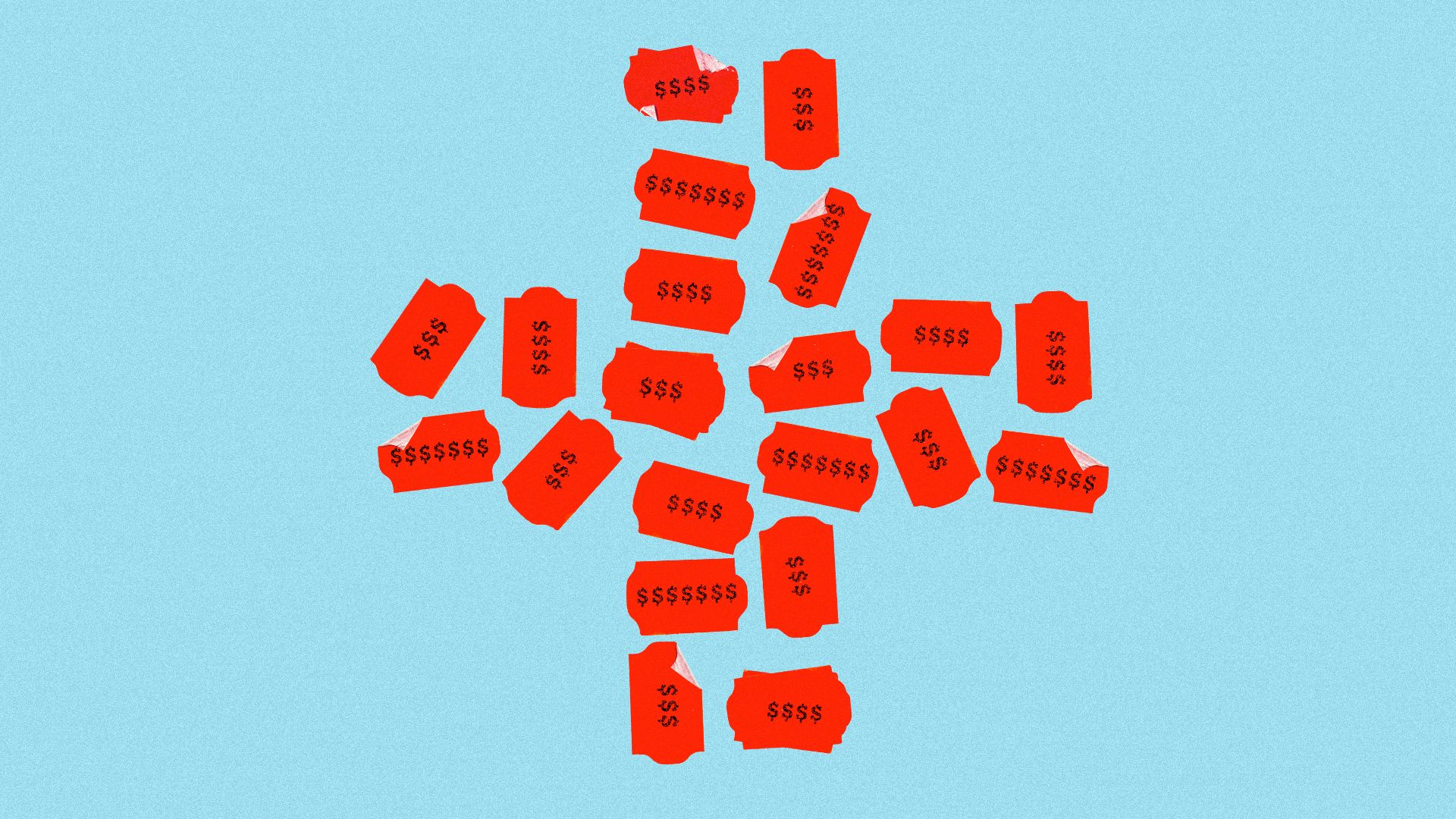Democrats double down on health care prices
Add Axios as your preferred source to
see more of our stories on Google.

Illustration: Aïda Amer/Axios
Many 2020 Democrats' health care proposals feature aggressive price regulations, either as a feature or a byproduct — a sign that the party has largely given up on the idea that competition alone can keep costs in check.
Between the lines: It's not just Democrats. As public outrage has grown over prescription drug prices and surprise medical bills, there's been bipartisan congressional interest in regulating prices.
The big picture: “The two big trends are increasing out-of-pocket costs to consumers and increasing disparity between public and commercial rates — and therefore consumer and employer pushback on those dynamics — and policymakers are now attempting to respond," said Chris Jennings, a Democratic health care consultant.
Medicare for All brings all provider and drug reimbursements under the federal government's control.
- Sen. Bernie Sanders has been elusive about what those rates would be, but Sen. Elizabeth Warren has proposed massive rate cuts to doctors and hospitals as a way to reduce her plan's cost.
Even the more moderate candidates' public-option plans would enroll more Americans in government health care plans that set rates. And some have pitched ideas like limiting how much providers can charge for out-of-network care.
- But supporters of a public option argue that it also enhances competition in the private insurance market, driving prices down across the board without completely abandoning the use of market forces.
All of the leading 2020 candidates have proposed drug policies, ranging from limiting how much drug companies can increase their prices to allowing the federal government to strip the patent from drugs that are deemed too expensive.
- Even President Trump has proposed limiting how much Medicare pays for certain drugs by tying the price to what other countries pay.
The bottom line: The industry hates all of these ideas.
- Providers, drugmakers and insurers are profiting wildly off of the status quo, and government intervention would come directly at the cost of those profits.
